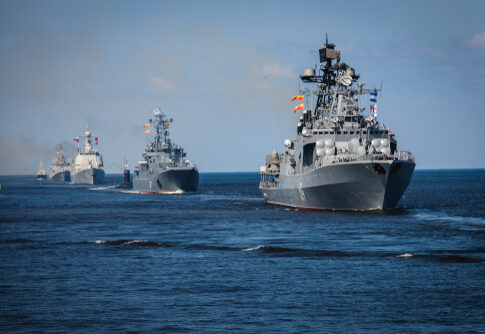A tragic friendly fire incident over the Red Sea involving two Navy pilots has prompted an investigation into operational protocol failures. The region remains volatile with ongoing Houthi attacks on vessels. Was this incident due to hostile fire?
Friendly Fire Incident in Detail
The unfortunate friendly fire incident over the Red Sea occurred when the USS Gettysburg, a guided-missile cruiser, mistakenly fired on and hit a F/A-18 aircraft. The two Navy pilots aboard were conducting routine operations when the cruiser opened fire, a mistake attributed to a breakdown in communication and operational protocols. Thankfully, both pilots were recovered alive, though one pilot had minor injuries.
This incident drew immediate attention to the precarious nature of military exercises and the criticality of precise coordination among military branches. The Red Sea corridor, where this unfortunate event took place, is currently a high-risk area due to ongoing Houthi attacks on shipping despite consistent U.S. and European military patrols.
BREAKING🚨: US Central Command reports a friendly-fire incident over the Red Sea, where a U.S. Navy F/A-18F Super Hornet from USS Harry S. Truman was accidentally shot down by the guided missile cruiser USS Gettysburg. Both pilots ejected, were rescued, & one has minor injuries pic.twitter.com/psM5Hr5gqd
— Officer Lew (@officer_Lew) December 22, 2024
Operational Failures and Regional Tensions
At the time of the incident, the U.S. military was conducting aggressive airstrikes against Yemen’s Houthi rebels. These military movements coincided with the USS Harry S. Truman Carrier Strike Group’s operations, from which the F/A-18 had launched. The USS Gettysburg’s error has raised critical questions about the effectiveness of existing communication systems in distinguishing friend from foe.
“The guided-missile cruiser USS Gettysburg, which is part of the USS Harry S. Truman Carrier Strike Group, mistakenly fired on and hit the F/A-18,” said Central Command.
The situation in the Red Sea remains fraught with tension. The Houthi rebels’ consistent targeting of military and merchant vessels with missiles and drones, even as they claim to target only those linked to Israel or its allies, complicates the security landscape. This friendly fire incident underscores the importance of reassessing and improving operational safety measures.
🚨BREAKING: Two US Navy pilots shot down over the Red Sea, where a U.S. Navy F/A-18F Super Hornet from USS Harry S. Truman was accidentally shot down by the guided missile cruiser USS Gettysburg.
Both pilots ejected, were rescued, & one had minor injuries. pic.twitter.com/CFaGZXHHlE
— AJ Huber (@Huberton) December 22, 2024
Path Forward: Investigation and Security Enhancements
The U.S. military has placed a high priority on thoroughly investigating this friendly fire mishap. A comprehensive inquiry into the event is currently underway, focusing on the communication systems that failed and the operational protocols that were not adhered to. This investigation aims to rectify these security lapses to prevent future occurrences. Meanwhile, U.S. forces continue to engage in defensive actions, taking down Houthi-launched drones and missiles in the troubled region.
As conflicts continue in the region, it is paramount for U.S. and allied forces to enhance synchronization in military operations. This includes revising communication protocols and improving recognition systems to ensure all personnel can safely execute their duties without the risk of internal conflicts. With ongoing threats and existing political tensions, such measures will be crucial in safeguarding military personnel and maintaining strategic stability.


